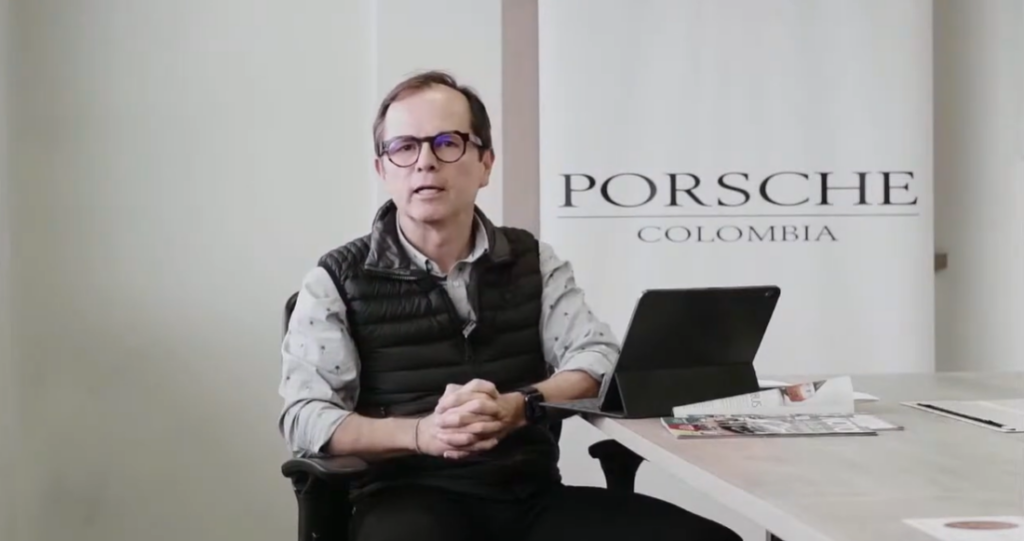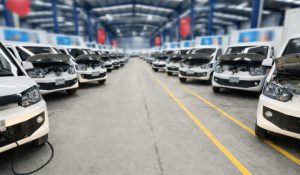
Porsche Colombia Proposes Ethanol Fuels to Reduce 2.8 Million Tons of CO2 a Year

As one of the main participants in the Latam Mobility Colombia 2022 meeting, Porsche Colombia took advantage of the forum that brought together the main companies working in favor of sustainable mobility in the country, to introduce an important proposal that could be key to the automotive sector decarbonization.
Juan Felipe Bedoya, General Manager of Porsche Colombia (importer of the Volkswagen, Audi, Seat, Cupra and Volkswagen Trucks and Buses brands), in the midst of a thorough analysis of the firm, revealed that the implementation of Ethanol in fuels would be a crucial complementary solution, since it would allow the reduction of 2.8 million tons of CO2 per year.
“We have reviewed experiences such as those of Brazil, where ethanol is an important solution while consolidating the path towards electrification, with the improvement of fuels and the whole energy transition”, explained Bedoya.
In the midst of the research, the executive of Porsche Colombia stressed that they have defined methodologies for analyzing the impact of ethanol, considering the production and emission of fuel from the carbon intensity of gasoline and ethanol, leaving as a result that in Colombia 180 grams of CO2 are emitted per kilometer traveled in passenger vehicles using the gasoline we commonly use, while with ethanol, this figure is reduced to 44 grams of carbon per kilometer traveled using 100% ethanol, which is a significant difference.
“If we define a strategy of enriching gasoline with ethanol and certain voluntary blends to improve the reduction of emissions, we can have a reduction of 2.8 million tons of CO2 per year until electrification is a majority in sales in the country”, emphasized Bedoya.
He pointed out that, after these theoretical analyses within Porsche Colombia, they will move on to a validation process in practice. “We want to confirm in the field that this can be endorsed on the streets. In a few months you are going to see Total Flex vehicles rolling to confirm this information and it will be evidence of deeper discussions on the impact of ethanol on fuel and emissions.”
Why the Proposal?
This complementary strategy submitted by Porsche arises because despite the great progress made in Colombia in electromobility, with important regulations and incentives and the participation of technology companies that have applied innovative technologies, there are still many challenges to be met and an immediate roadmap is needed to speed up the decarbonization process.
“The government has recognized that the implementation of new technologies to deploy electric mobility has been very slow, which is why we have presented how our complementary strategy can have a fundamental impact on decarbonization,” Bedoya said.
He further assured that the prices of electric vehicles compared to combustion vehicles, continue to pose a significant barrier. “Prices tell us something, the green premium between the price of combustion and electric model exceeds 75%. If a consumer wants to opt for an electric vehicle, he must pay between 70 and 150% more, which requires a change in consumer habits. This is why, although the transition is positive, it is slow.
Social and Economic Impact
Porsche believes that the strategy of using ethanol in fuels would not only mean an important advance in terms of decarbonization, but would also generate economic movement and improvements in the social sphere.
“Higher ethanol blends demand more quantities than are currently produced in the country, so we would need more sugar cane crops, which would translate into more jobs and better income for different families, and general improvements in the country’s conditions,” Bedoya said. “We are pleased with the government’s strategies to achieve decarbonization, but we believe that the massification of electric vehicles is going to take some time, which presents us with the need to take immediate actions, and additional to this complementary proposal. We want to recognize the great social impact it could produce”, he concluded.





